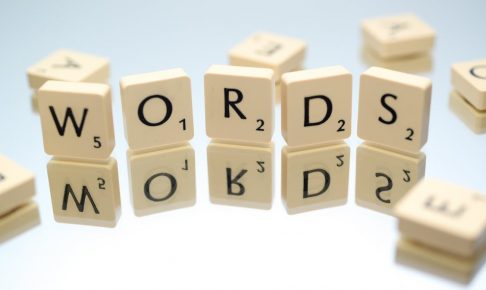- English (United States)
- 日本語
Hi, guys!
The other day, I attended a seminar where Paul Nation gave a presentation about vocabulary acquisition.
Paul Nation is a very famous SLA researcher, especially in the field of SLVA (Second Language Vocabulary Acquisition).
In this blog post, I’m going to discuss the effective ways to learn vocabulary based on the seminar and research in SLVA.
Two Keys
There are two important keys for learning vocabulary
1.Repetition
2.Quality of meetings
Wait, that’s it? Yeah, that’s it! You can learn vocabulary effectively and efficiently by considering these two keys.
Repetition
I assume most of you already know how important repetition is.
However, how many of you actually learn the same vocabulary again and again, repeatedly? Well, not so many I guess.
If you want to remember vocabulary well, repetition is the key.
Depending on the study, the answer to the question, “How many times should I repeat?” is varied. But that’s not important. Just do (repeat) it until you remember.
There are a couple of ways you can increase repetition.
One way is to get exposed to a lot of input. The more input you are exposed to, the more often you meet the target vocabulary.
Paul Nation recommended materials with vocabulary-controlled input. You can get the vocabulary-controlled input by doing extensive reading and extensive listening.
Graded readers are great materials for extensive reading.
This kind of input is very ideal for vocabulary learning. In a graded reader, only a limited number of vocabulary is used. That means, same vocabulary has to be used over and over again. So you will see the same vocabulary many times.
Again, the more you meet the vocabulary, the more likely learning will occur.
Another way to increase repetition is my favorite.
It’s called deliberate learning.
One great example of this type of learning is learning with flashcards.
Yes, flashcards. Guys, don’t get disappointed.
In fact, many studies show its effectiveness.
I know a lot of people are not big fans of flashcards.
However, I believe it’s because a lot of people don’t know how to use flashcards effectively.
Again, the first and foremost key is repetition.
If you haven’t succeeded in learning vocabulary with flashcards, it might be just because the repetition wasn’t enough.
Creating flashcards is a pain and time-consuming, especially if it’s paper flashcards. But you can create flashcard sets online very quickly and easily.
I have talked about this in other posts. If you haven’t tried online flashcards, you should!
Don’t forget. The most important thing is repetition, not creating your sets.
Quality of meetings
There are four types of meeting.
1.Incidental Receptive
2.Incidental Productive
3.Deliberate Receptive
4.Deliberate Productive
The major quality divisions are incidental vs. deliberate, and receptive vs. productive.
If you are reading a book in your target language and try to recall a word’s meaning, it is incidental receptive.
Is it clear?
Let me show you an example of each type of meeting.
When you are talking with someone in your target language (say, your target language is Japanese! Hurray!), and you want to say something is “important” and you retrieve the word for it (重要な), then it’s going to be incidental productive.
Learning with flashcards can be both deliberate receptive and deliberate productive.
When you are learning vocabulary in receptive way, (look at L2 word and try to recall meaning), it’s deliberate receptive.
And when you are learning vocabulary in productive way (look at L1 meaning and try to recall L2 word), it’s deliberate productive.
Quite simple, right?
In the seminar, Paul Nation said something like “Deliberate always wins but incidental is also important.”
I think he meant deliberate learning is more efficient but incidental learning is also important.
In vocabulary learning, it’s been said that it is also important to meet the target vocabulary in different contexts.
You can control deliberate learning but it’s not easy to control incidental learning because it has to be INCIDENTAL…duh!
In order to increase incidental meetings, you need more input after all.
Quality of meetings is not about which type is good or bad.
It’s just good to know which type of meeting you are doing and to balance the meeting types.
Finally…
In this blog post I discuss the effective ways to learn vocabulary.
Did you like it?
I hope this post will help you learn vocabulary efficiently and effectively.
See you in the next post!









Leave a Reply